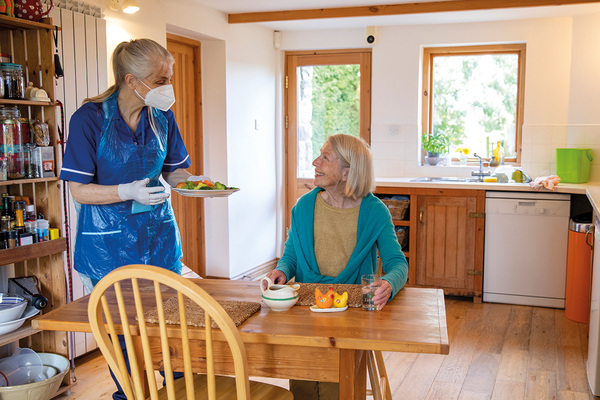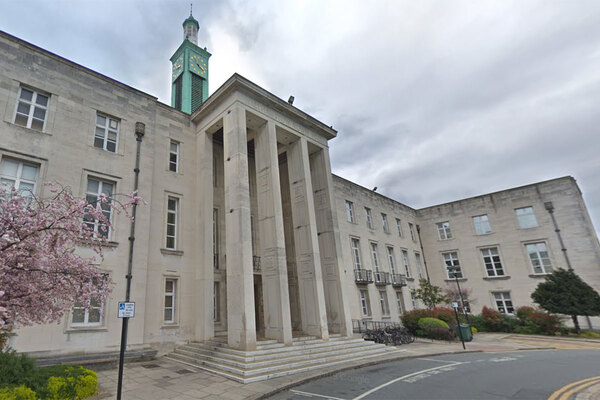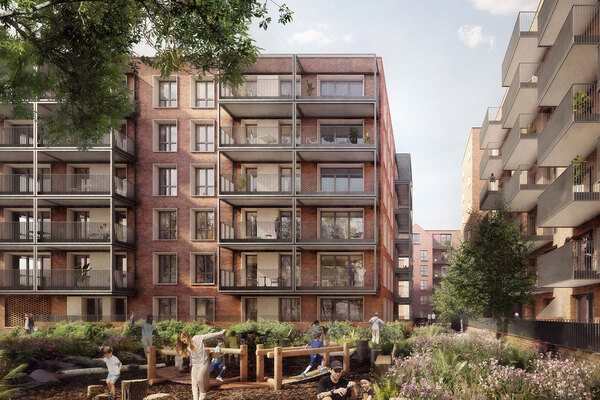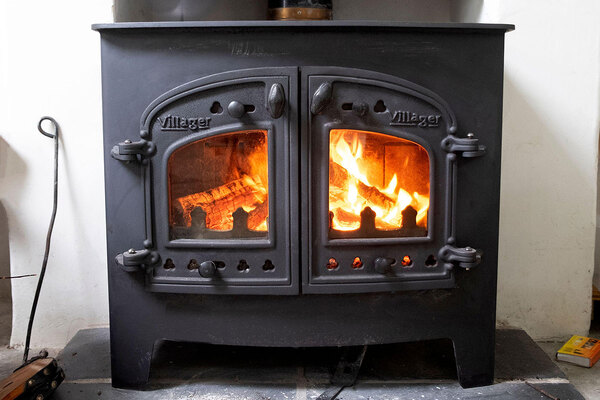Retirement communities need special consideration in the move to commonhold
We are supportive of commonhold, but it is critically important that modifications are made to ensure it works for retirement communities, writes Harry Jeffries, general counsel at developer McCarthy Stone
The government has indicated its intent to abolish leasehold for all new apartments, and reinvigorate commonhold as the alternative system of ownership.
Commonhold is a type of freehold ownership where homeowners own their own apartment and are members of a commonhold association that owns the common parts of the building. While giving control to homeowners, it also imposes obligations and responsibility on them with regard to the development’s operation, maintenance and repair.
We recognise that there is strong political will for reform. Working closely with our legal adviser Sarah Walker at Travers Smith, we have looked at how commonhold could work for new retirement communities. Overall, we are supportive of the use of commonhold and believe it could help build consumer confidence in the housing market as a whole.
We also successfully operate 28 retirement communities in Scotland, which already has a broadly equivalent form of commonhold under the factors system. However, it is critically important that modifications are made to commonhold to ensure it works for retirement communities in England and Wales.
Below, we lay out four reasons why retirement communities need special consideration as part of the proposed move to commonhold, and our recommendations for progressing it in this part of the market.
First, retirement communities are an essential part of the housing ecosystem and need encouragement. We operate 540 schemes in total. All our developments in England and Wales generally work well under leasehold, where we remain as the landlord and managing agent, and where there is an established body of landlord and tenant legislation and codes of practice providing consumer protection.
We have the highest levels of customer satisfaction in the sector, where nine in 10 customer reviews are positive. New research by Homes England has found that retirement communities result in improved well-being, happiness and life satisfaction for residents. Of all the developments we have managed, just six have exercised their right to manage, indicating our customers are largely content and do not seek additional management responsibilities.
“Residents of retirement communities therefore have specific characteristics which give rise to potential governance, operational and insolvency risks for the commonhold association, as well as concerns for the protection of residents”
In addition, retirement communities deliver significant social benefits, keeping older people healthier and reducing their impact on the NHS. They also free up large family-sized homes for younger people. With the number of people aged over 65 set to grow by five million in the next 20 years, there is demand to increase supply from about 7,000 new properties a year to 30,000. It is therefore important that the right regulatory framework is in place, or supply could go backwards.
Second, retirement communities fundamentally differ from normal apartments. There are two main types – retirement housing with support, and with care. Retirement housing with support provides age-restricted apartments designed for later living alongside communal facilities such as resident lounges, laundries and other shared areas, plus a dedicated house manager.
Retirement housing with care has all of this alongside care services regulated by the Care Quality Commission, 24-hour on-site support and larger shared areas, including full-service commercial restaurants and well-being suites. We operate both types.
Across our retirement communities, the average age of a purchaser is about 80, and this is typical in the sector. Many residents experience challenges with their health and well-being and have moved to a retirement community to reduce the worry factor in their lives. Residents therefore have specific characteristics which give rise to potential governance, operational and insolvency risks for the commonhold association, as well as concerns for the protection of residents.
Most will not want to, or be able to, take on the additional responsibilities associated with owning a commonhold unit and taking part in the demands of operating a retirement community.
Third, tenure reform must not put off new investment in this sector. Commonhold in its current form could present a risk to an investor’s asset if there is the potential that the development might not be adequately maintained, or that a slim majority of residents could vote to remove services or facilities on which other residents rely. If investors are nervous about the implications of commonhold, new schemes will be harder to launch.
Fourth, it is essential to improve the system of commonhold that already exists. Since its inception in 2002, only about 20 commonhold schemes have been completed in England and Wales. The tenure was subject to a Law Commission report in 2020, which culminated in 121 recommendations to make it a workable alternative. We support the implementation of these recommendations as part of any reform.
In addition to accepting the Law Commission’s recommendations, we believe there is merit in introducing new rules and safeguards specifically for commonhold in retirement communities that put residents’ needs first while also recognising the expertise of retirement housing operators to run the developments. We have looked at various structures that seek to get this balance right and feel two have merit.
For retirement housing with support, we feel a form of commonhold where the whole development, including communal facilities, is owned as commonhold by residents would be suitable. The retirement housing operator would then provide retirement housing services, but with a new sector-specific and standardised governance contract in place.
“We believe there is merit in introducing new rules and safeguards specifically for commonhold in retirement communities that put residents’ needs first while also recognising the expertise of retirement housing operators to run the developments”
The operator would remain in place while the development is established, say for three to five years, and residents could then change the operator should they wish. However, any new operator would need to work to the requirements of the original contract, so that residents are assured as to the development’s continued operation and services provided.
For the more-involved retirement housing with care schemes, we feel a supported form of commonhold would be more suitable. Residents would own the apartments as commonhold, but the ownership of the shared areas of the development that provide the communal facilities and services are retained by the operator and developer, again with a new standard retirement housing contract in place that governs how the services and shared areas are to be managed and charged. The operator would then work jointly with the residents’ commonhold association.
Alongside this we also propose modifications to the standard commonhold community statement for retirement schemes. These modifications would not require major change to the existing legislation but would, importantly, result in a retirement community sector that is both democratic and sustainable.
We’d also like to say a final word on leasehold. The system has been widely reformed in recent years. New ground rents have been abolished and rights to appoint a new managing agent and buy the freehold have been improved, all benefitting leaseholders. Legislation already requires that service charges must be charged at cost and be reasonable. As a result, leaseholders today are in a strong position. Further reform should ensure it addresses real concerns that still exist. Service charges, for instance, will still be necessary in any development with multiple occupiers and shared facilities, and won’t disappear under commonhold.
Overall, we support the move to commonhold with specific modifications and believe that it has the potential to reinvigorate the market, providing consumers and operators with the confidence they need. We have engaged officials within the Ministry of Housing, Communities and Local Government on these proposals and we look forward to discussing our recommendations with them and others in the months ahead.
Harry Jeffries, general counsel, McCarthy Stone
Sign up for our care and support bulletin
Already have an account? Click here to manage your newsletters













